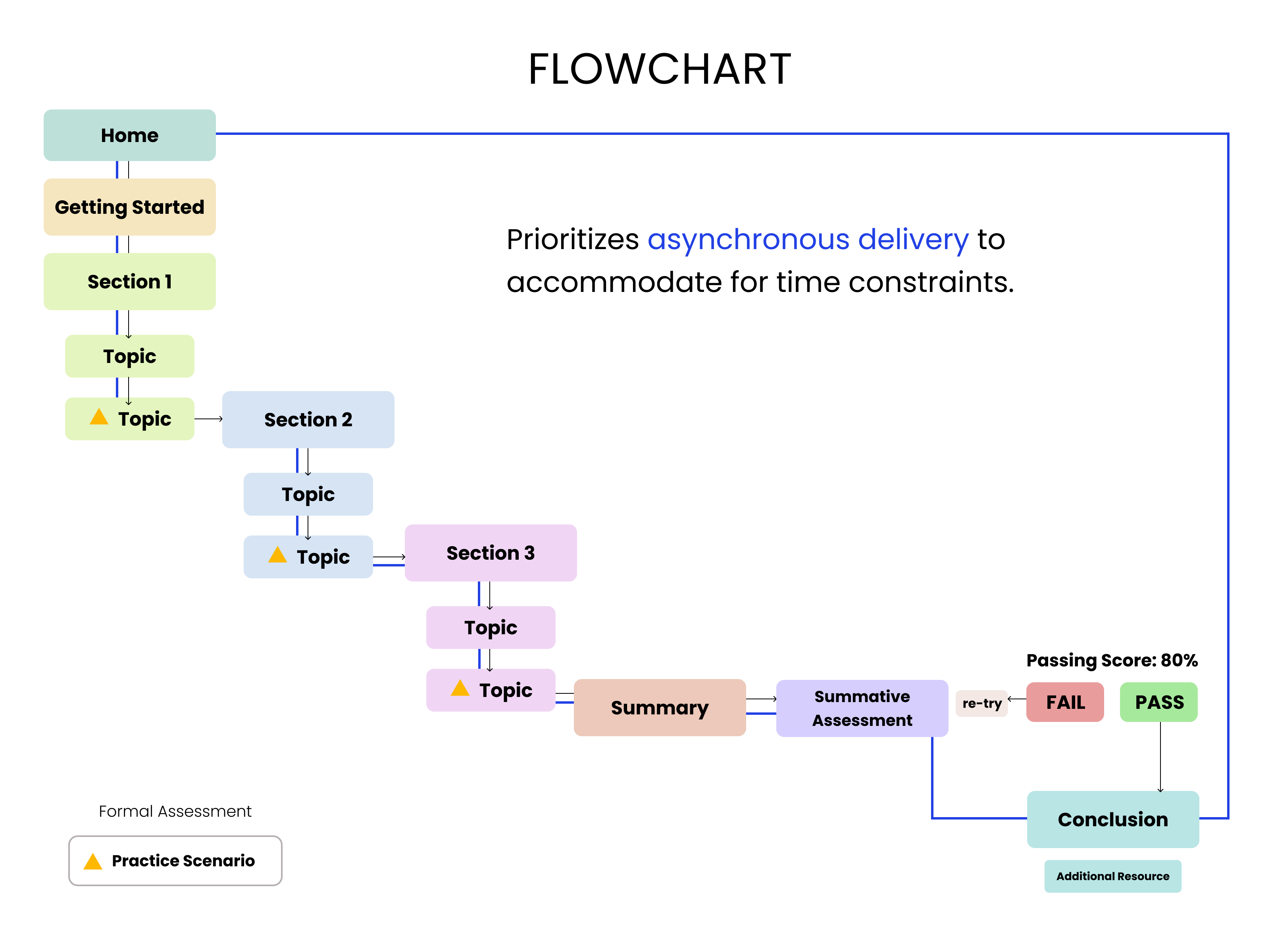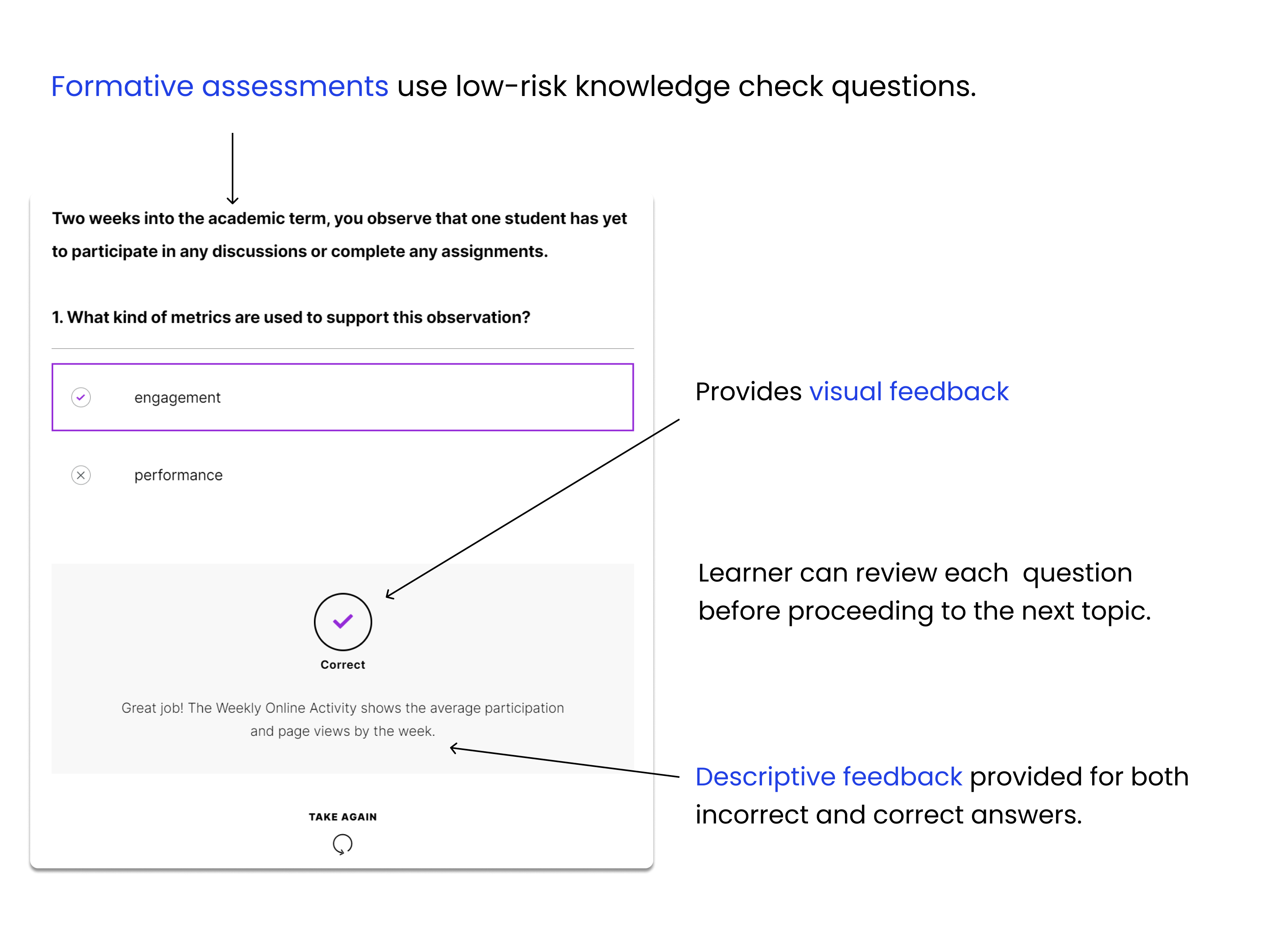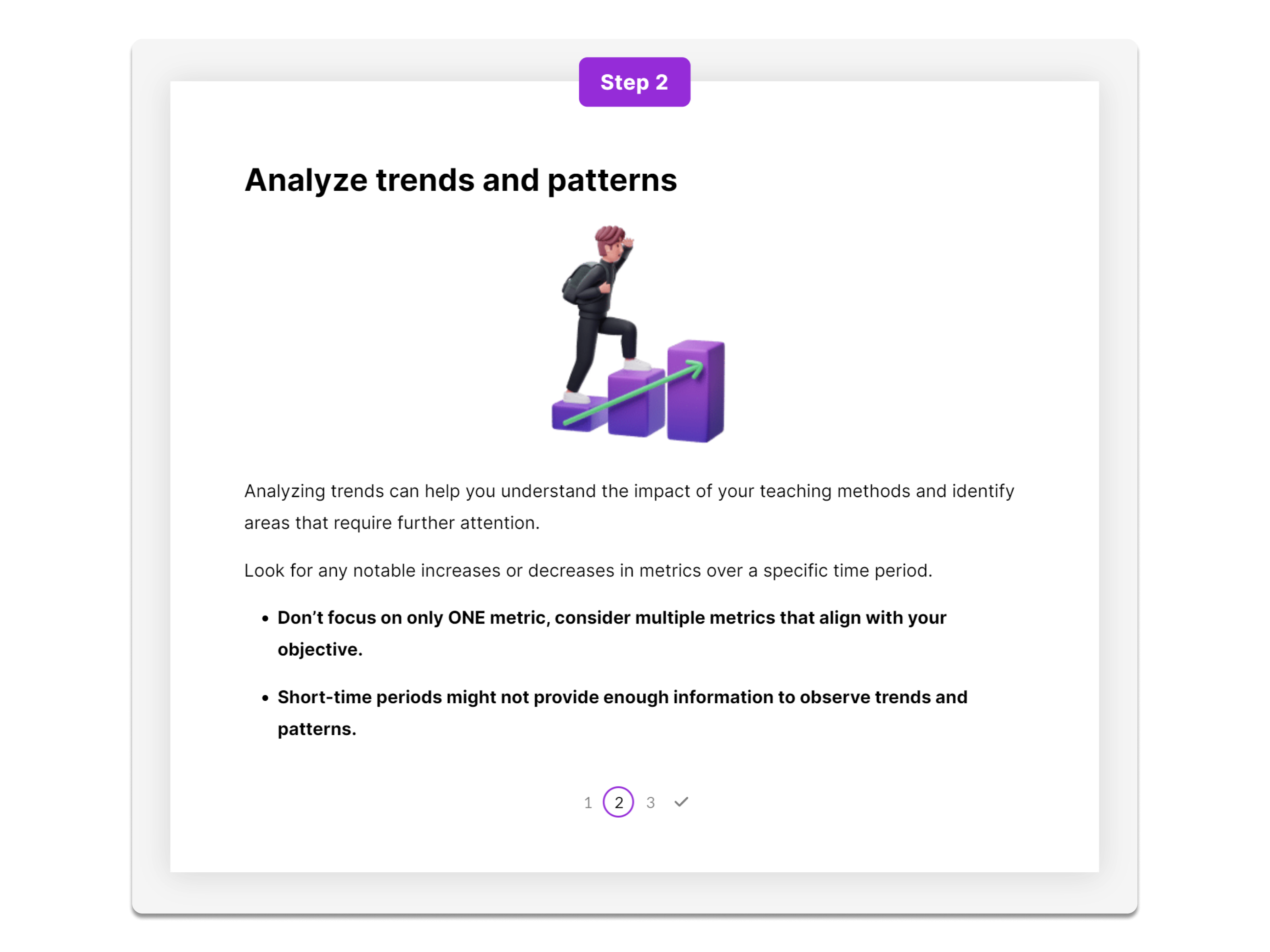Data Literacy for Higher Education Instructors
Instructors in higher education understand the importance of making courses accessible and inclusive, however, they often lack the time to improve digital access and develop skills in analytics. This project aims to solve these issues by breaking down complex topics into easy-to-understand segments in an online asynchronous format, meeting instructors' needs efficiently.
For Businesses: This project can also be an example for streamling complex workforce training into clear and concise learning segments.
Data Doesn't Tell the Whole Story
Misinterpreting data can lead to biases and false conclusions about student learning needs.1
Common factors that can lead to misinterpretations include:
- Varied learning preferences, such as visual, auditory, and kinesthetic.
- Preference for individual work.
- Preference for group work.
- Availability of student accommodations.
In online learning, the principles of andragogy highlight the need for active participation to effectively learn and acquire knowledge. 1
Since my target audience is higher education instructors, I chose andragogy as my supporting learning theory because it aligns well with their needs and experiences.
Andragogy
Core principles of andragogy:
- Self-concept: recognizes learner's autonomy and values prior experiences.
- Experience: acknowledges prior experience as a resource.
- Readiness to learn: prefers content applicable to personal goals.
- Orientation to learning: prefers task-oriented and relevant content.
- Motivation: includes intrinsic and/or extrinsic factors.
Problem-based learning (PBL) can be a highly effective method for understanding the complexities of educational data.
This instructional strategy promotes:
- Being an active learner rather than a passive recipient of information.
- Collaborative thinking for constructive discussions.
- Critically inquire about various perspectives.
Case Scenarios
Here a few key aspects of using case scenarios:
- Focuses on relevant real-world situations.
- Using an instructor perspective promotes attention to content material.
Project information
- Software: Articulate Rise and Storyline 360
- Category: Learner Support Material
- Est. Completion Time: 30 minutes
*Note:
This project focuses exclusively on online courses and does not cover hybrid course formats.
Usability Testing and Feedback
I conducted an online survey containing quantitative and qualitative questions for subject matter experts and instructional designers to identify potential weaknesses and gather suggestions for improvement.
A mix of qualitative and quantitative methods offers a greater comprehensive perspective and captures valuable insights that may not be accessible through just quantitative approaches.
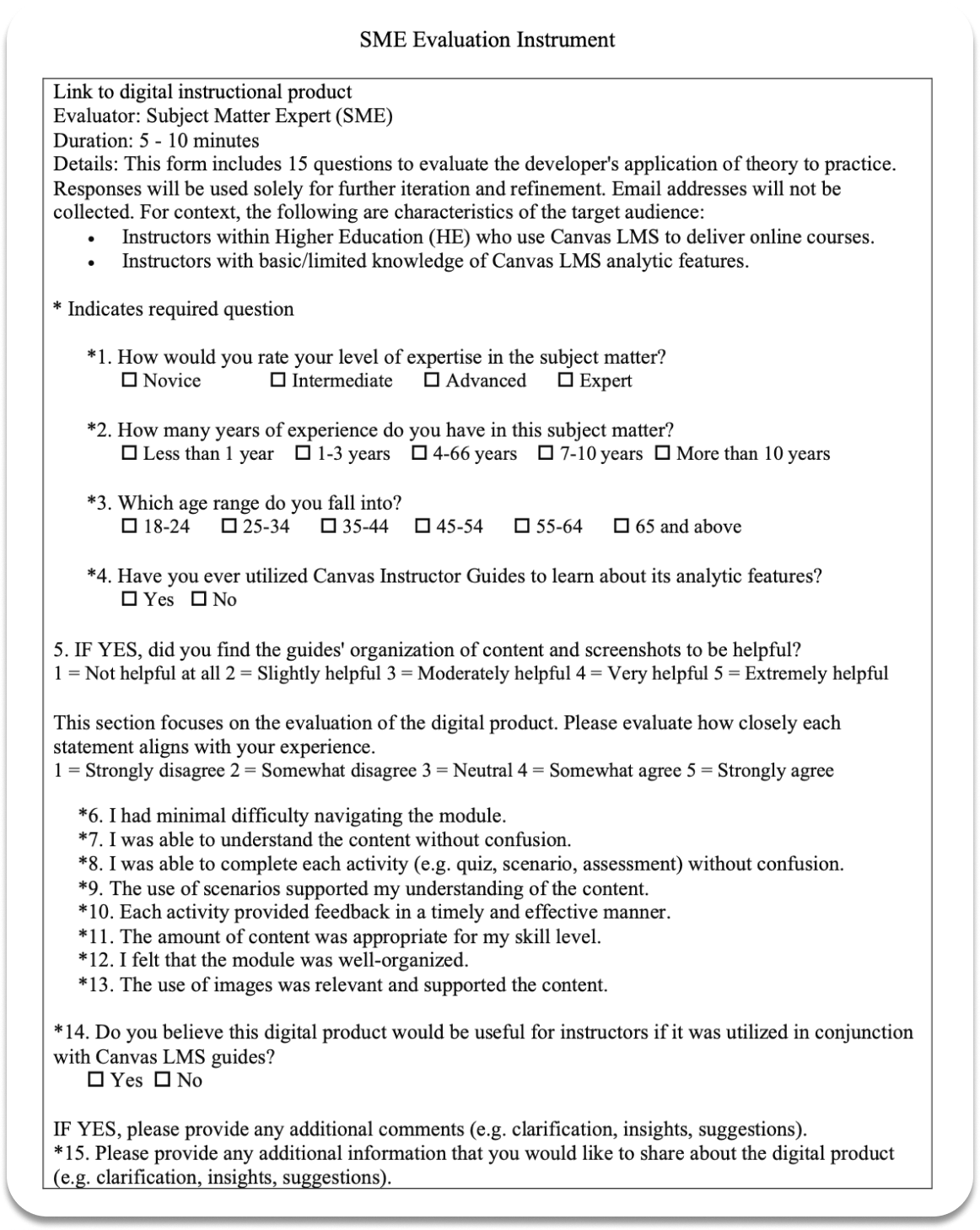
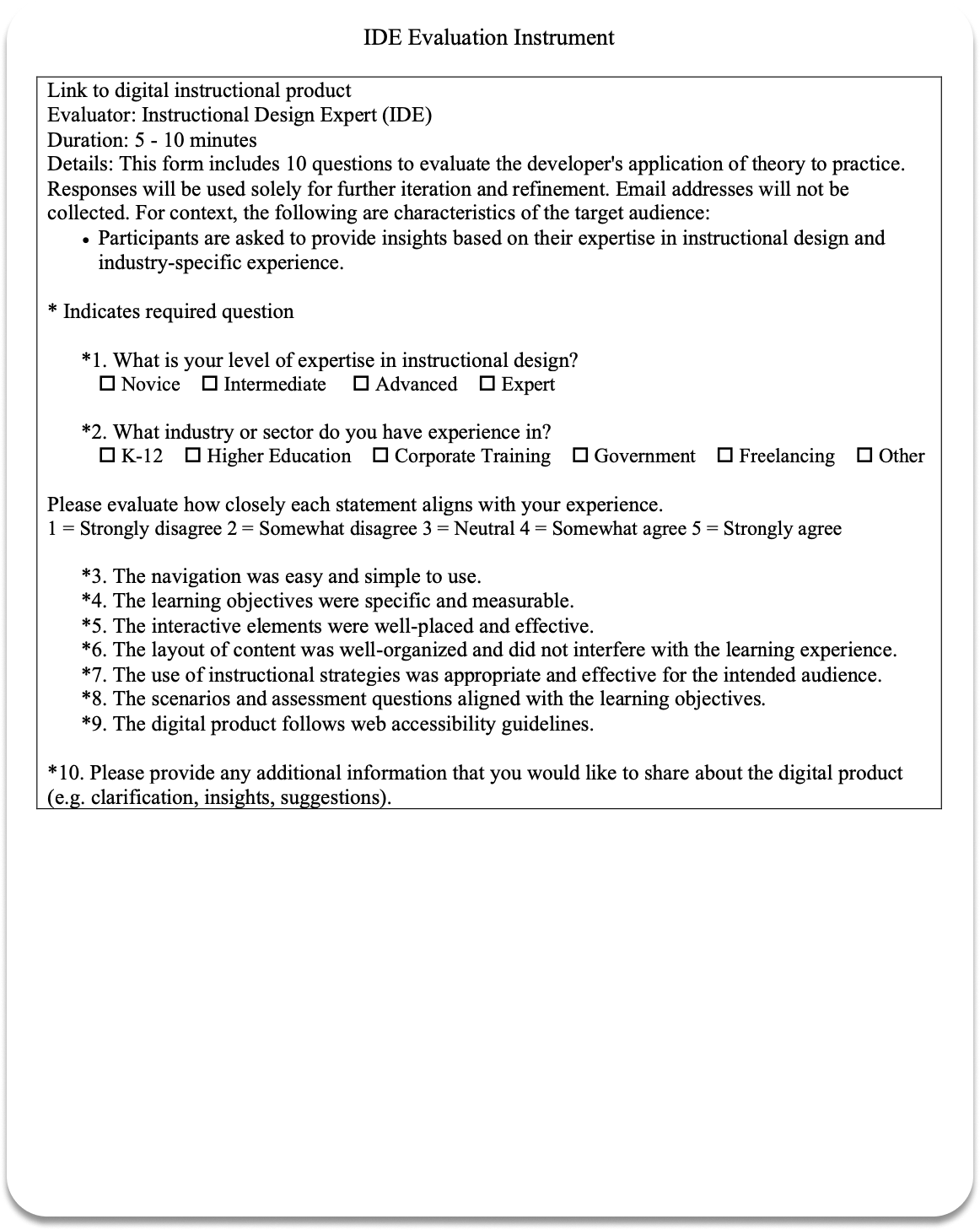
Key Areas for Improvement
Problem-based learning can boost instructors' engagement and understanding by:
- Simplifying navigation can enhance the interactive analytics feature.
- Allowing data manipulation
Recommendations
- Conduct usability testing with a larger audience to gain better insights into user challenges.
- Create a sandbox course with mock data to encourage exploration and data manipulation.
- Collaborate with educational technology experts for generating realistic student interactions.
Reflection
The project focused on diving deep into the analytics provided by Canvas to uncover actionable insights that could improve student engagement and learning outcomes. Through this process, I've learned the importance of making these analytics accessible and actionable for instructors. The challenge was not just about gathering data but making sense of it in a way that genuinely informs teaching practices and enhances student interactions.

